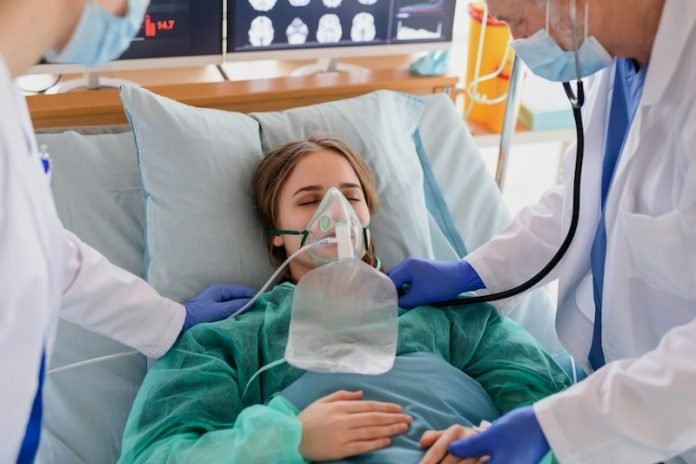
In a study published in Cell Metabolism, researchers have discovered a critical link between the gut microbiome and the risk of developing thrombosis, the dangerous formation of blood clots that can lead to heart attacks and strokes.
The study identifies a gut microbial metabolite, 2-methylbutyrylcarnitine (2MBC), as a key factor that exacerbates thrombosis, particularly in individuals with COVID-19, shedding light on why these patients face a higher risk of such complications.
Led by Sifan Chen of Sun Yat-Sen University, the research team embarked on a quest to understand the intricate mechanisms at play between gut microbiota dysbiosis—a disruption in the balance of gut microbial communities—and an increased risk of thrombosis.
Despite the known association between gut microbiota imbalances and cardiovascular diseases, the specific pathways and metabolites contributing to these conditions remained elusive.
Through comprehensive multi-metabolomic analyses involving participants with and without COVID-19, the researchers pinpointed 2MBC as a significant metabolite that accumulates in individuals suffering from the virus, as well as in patients experiencing major adverse cardiovascular events (MACE).
This accumulation persists even after the virus has been cleared from the body, indicating a lasting impact on thrombotic risk.
The study’s findings are particularly striking as they demonstrate how 2MBC promotes platelet hyperreactivity and thrombus formation in mice.
Remarkably, the elimination of gut microbiota using an antibiotic cocktail significantly reduced the levels of 2MBC in the plasma, alongside a decreased tendency for thrombosis following SARS-CoV-2 infection.
This suggests a direct link between gut microbial metabolites and the body’s propensity to form blood clots.
Further investigation revealed that 2MBC exerts its effects by binding to the integrin α2β1 receptor on platelets, enhancing their responsiveness and promoting clot formation.
Integrins are critical for cell-cell and cell-matrix interactions, playing a pivotal role in thrombus formation. The study shows that targeting integrin α2β1, either genetically or pharmacologically, can effectively reduce the thrombosis risk posed by 2MBC.
This research not only highlights a novel biological function for 2MBC as a signaling molecule but also uncovers a potential mechanism underlying the increased incidence of thrombosis in COVID-19 patients.
Additionally, it suggests that 2MBC may be a driving factor behind the heightened thrombotic potential observed in metabolic disorders like obesity and diabetes, independent of traditional risk factors.
The study opens new avenues for understanding the complex interplay between the gut microbiome and thrombosis, offering promising prospects for the development of targeted therapies.
While integrin α2β1 has been identified as a key target for 2MBC, the researchers acknowledge that other cellular targets may exist and warrant further exploration.
This research underscores the importance of considering gut microbial metabolites in the prevention and treatment of thrombosis, potentially leading to more effective interventions for patients at risk.
If you care about heart health, please read studies about the best time to take vitamins to prevent heart disease, and scientists find how COVID-19 damages the heart.
For more information about heart health, please see recent studies about Aspirin linked to higher risk of heart failure, and results showing this drug could reduce heart disease, fatty liver, obesity.
The research findings can be found in Cell Metabolism.
Copyright © 2024 Knowridge Science Report. All rights reserved.



